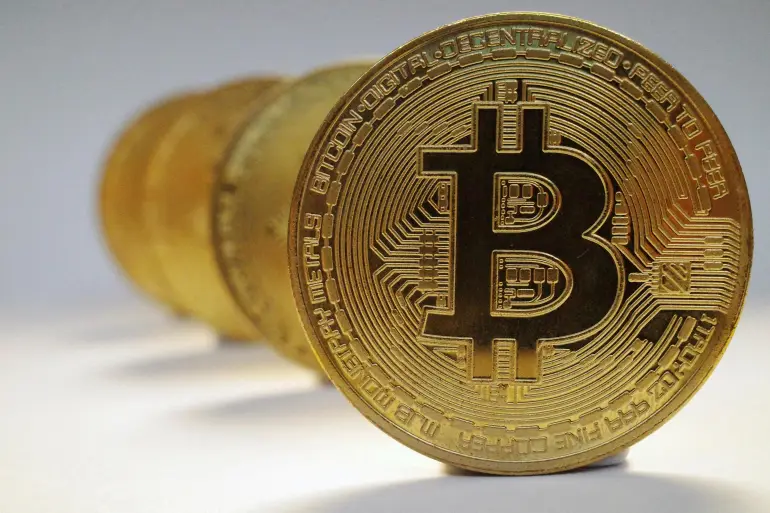Cryptocurrencies are becoming more and more relevant, both for small investors and for entire governments and countries. At the top of all cryptocurrencies has been Bitcoin from the very beginning, with a current market capitalization of around $820 billion. But how exactly does this programmable money work?

Bitcoin was put online in 2009 by a Japanese pseudonym named Satoshi Nakamoto. To this day, it is not known who he is, because the entire Bitcoin system is anonymous. However, he is believed to own 1,100,000 Bitcoin according to blockchain data. That is a little more than 50 billion US dollars. A total of 21'000'000 Bitcoin can circulate. Currently, there are 18'900'000 Bitcoin in circulation.
Blockchain
The blockchain is the fundamental link of all cryptocurrencies. It ensures anonymity, a protection from hackers and a fast transaction latency. It works in such a way that the "miners" are connected to each other via the Internet. Each block that is mined has a certain number based on the number of the previous block. If a hacker tries to manipulate this block, the blockchain is synchronized on all miners. If a miner has a different number, it will be excluded from the blockchain.
Miner and Mining
Just as money is printed, Bitcoin must also come into circulation. This is done by the miners. They mine blocks from the blockchain. These blocks are needed for wallets (the place where you store your Bitcoins, similar to a wallet), transactions, and just for Bitcoin to be unhackable. Miners have to do highly complex calculations to "mine" a block. That's why the new graphics cards in particular are so popular on the market, because you can mine a lot of blocks with them. But what is the advantage of mining? You get Bitcoins as a reward. Currently, the reward per mined block is 3.25 Bitcoin and is halved every four years. Therefore, it is assumed that it will take until the year 2140 until all 21,000,000 Bitcoins have been mined.
Advantages and disadvantages
When you buy Bitcoins, you are responsible for managing your wallet and cannot be influenced by anyone, unlike banks where you can block accounts. Also, Bitcoin offers inflation protection with the help of the limit of 21,000,000, which means that the digital money does not lose value (in the long run). Also, the Bitcoin system is decentralized. This means that neither a government nor a person can exert direct influence on Bitcoin. Likewise, Bitcoin offers low transaction fees, no matter the amount. For example, if you want to send an amount abroad, there are many fees, which is greatly reduced with Bitcoin.
Bitcoin mining is very power intensive. Therefore, global mining consumption has a negative impact on climate change. Also, the blockchain is anonymous, which means you can buy on the black market without restrictions. Also, transaction latencies are slow compared to PayPal. A transaction can take up to 15 minutes. Also, the Bitcoin price is very volatile and can rise or fall under indirect influence. But the biggest problem is that it needs internet. Many people around the world do not have access to it.







